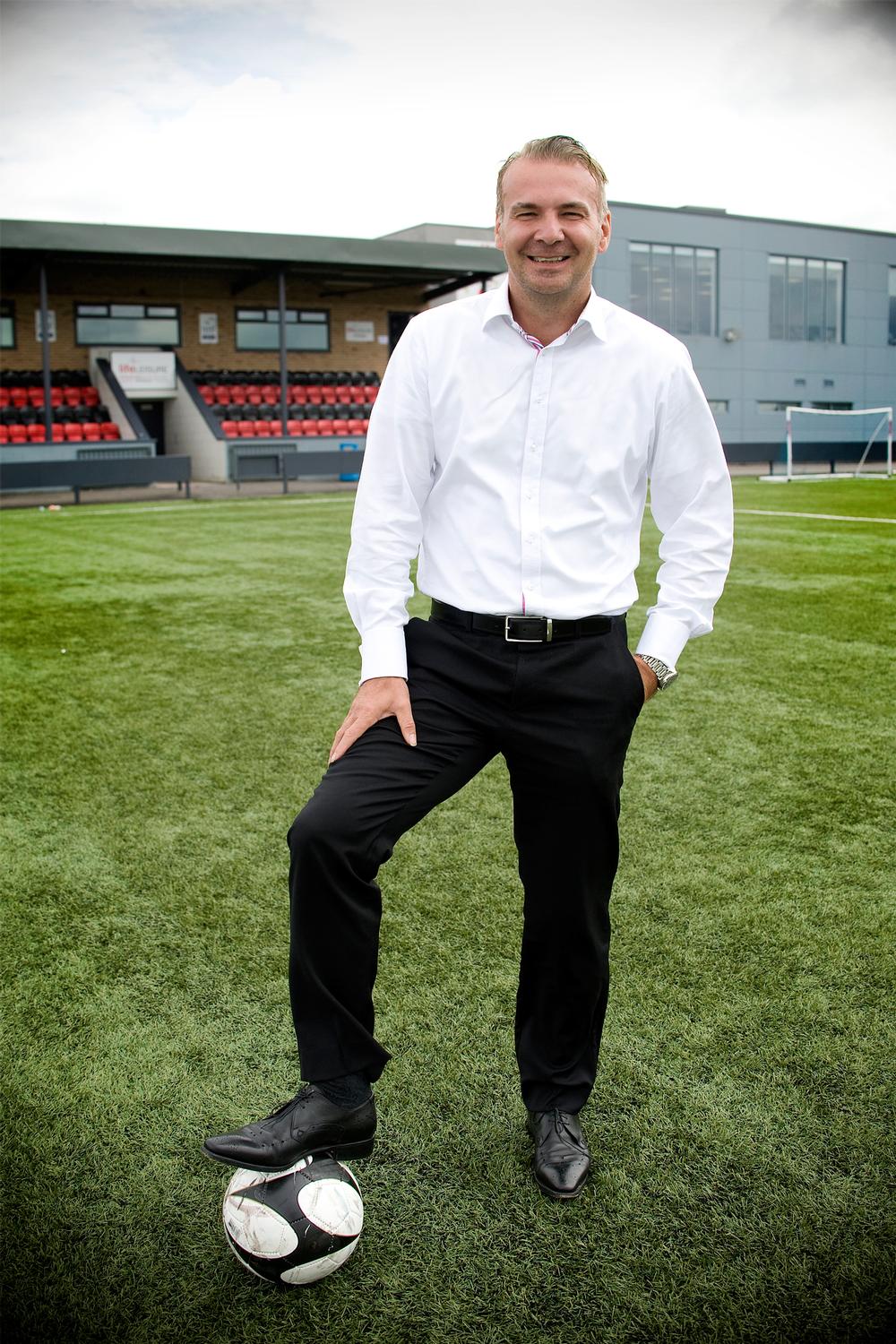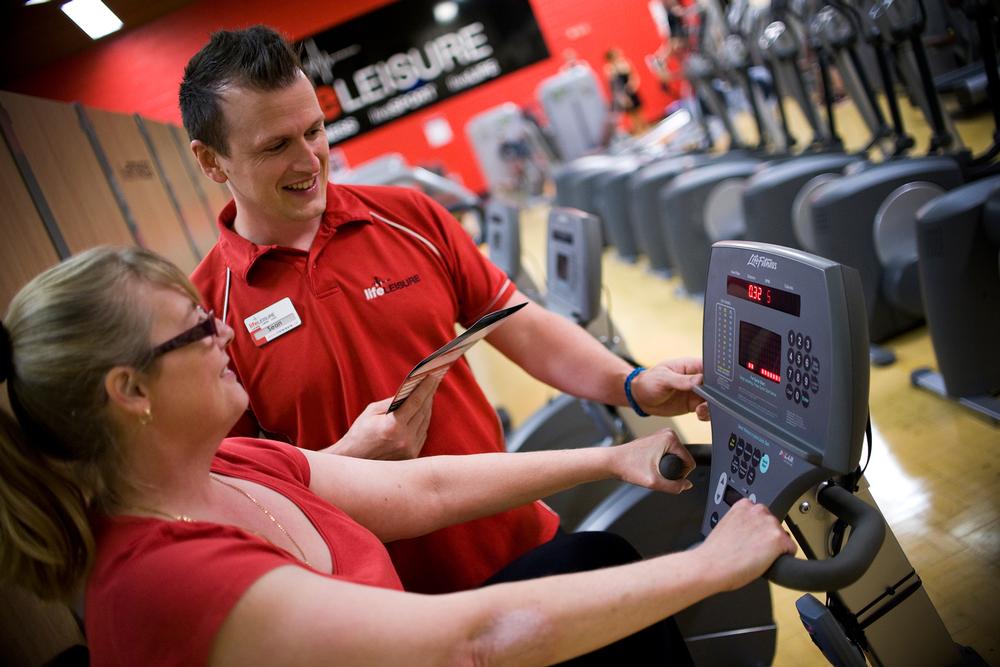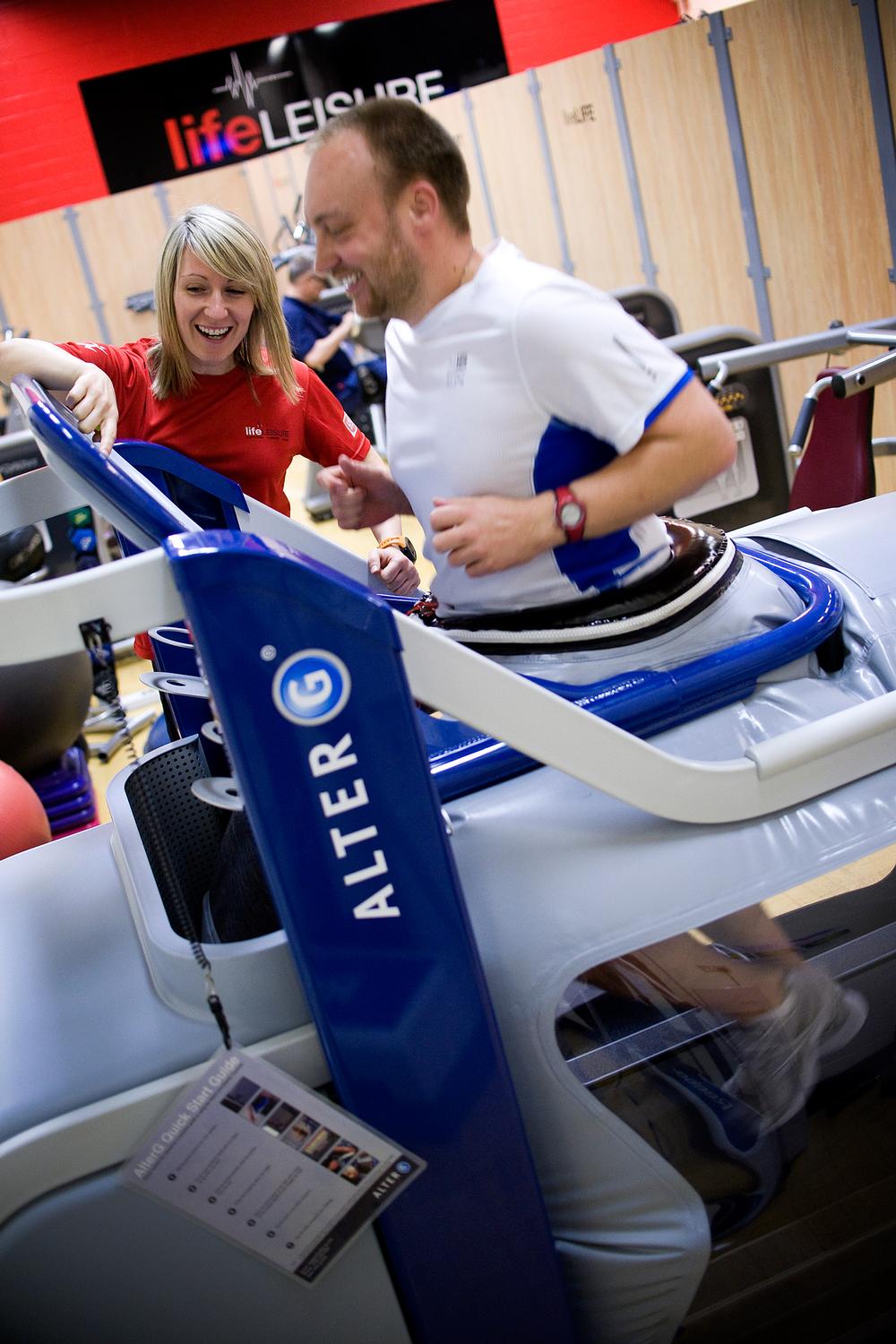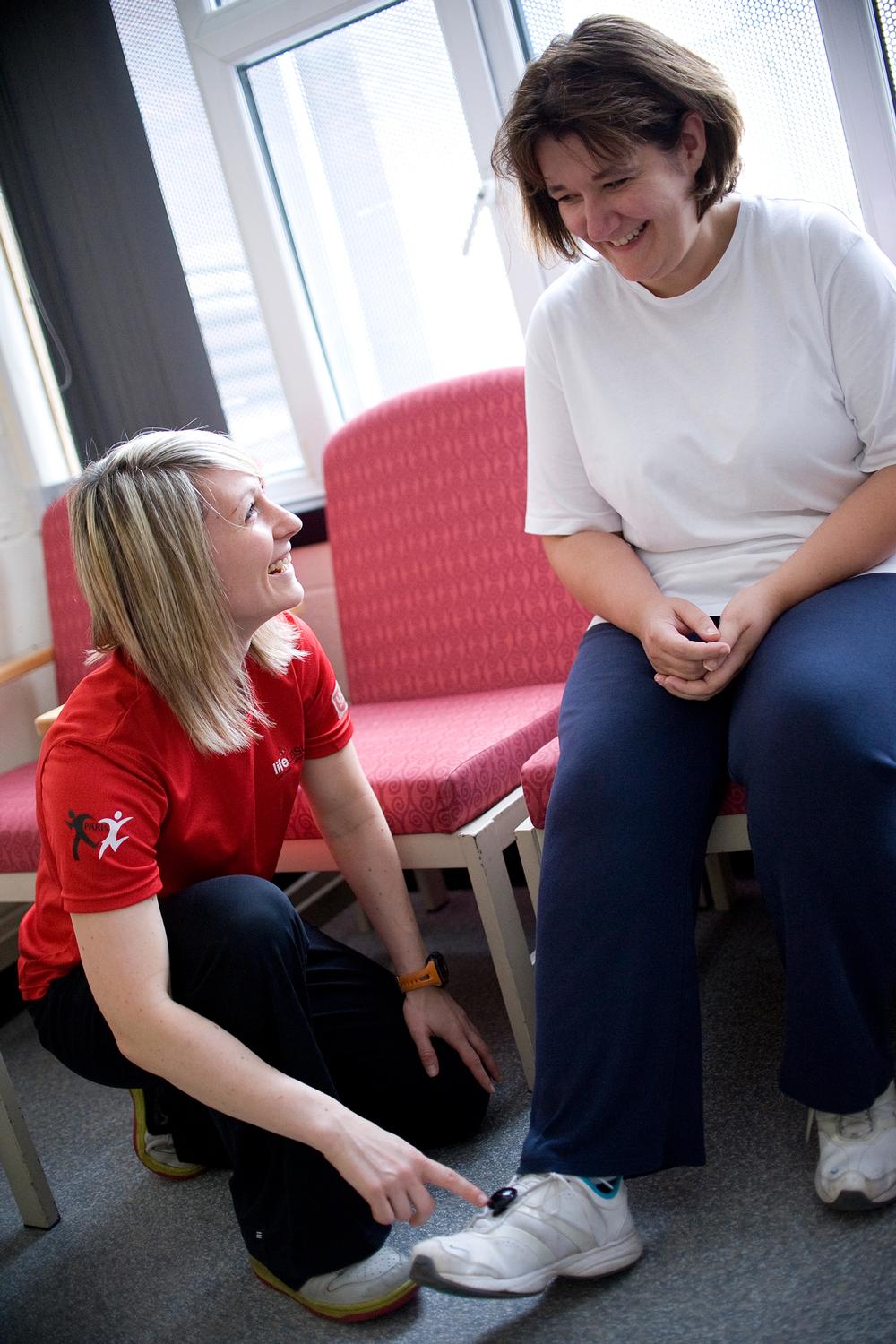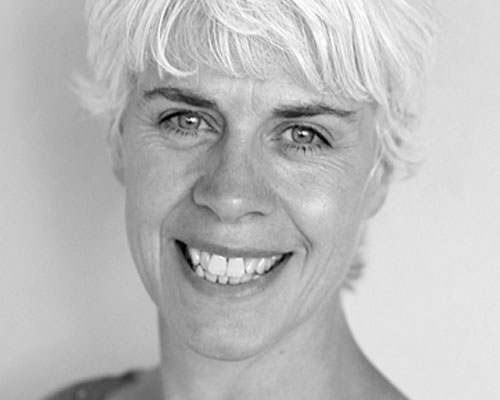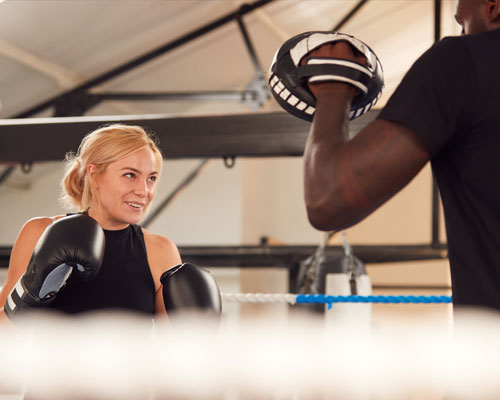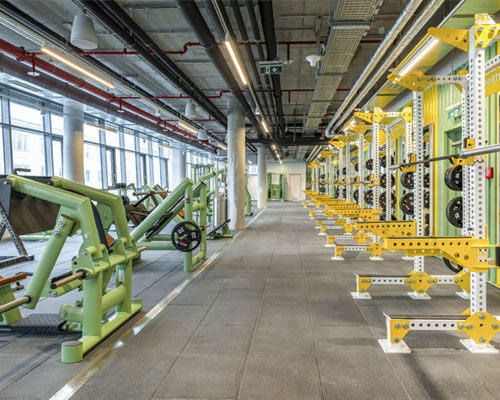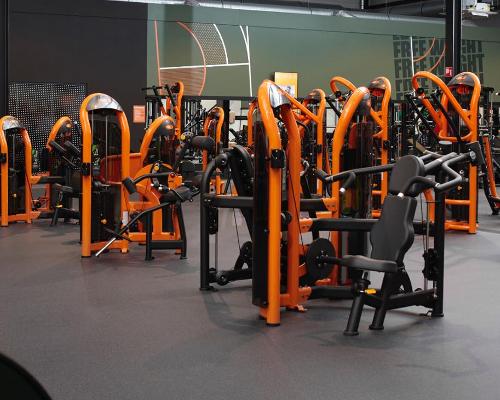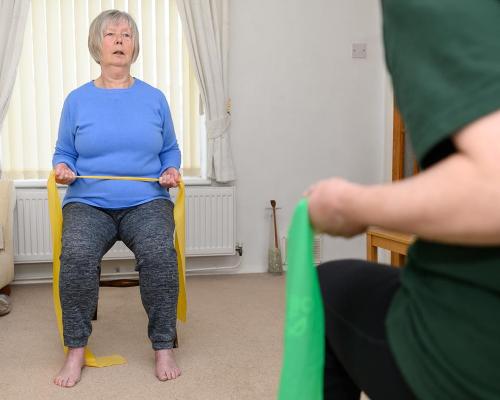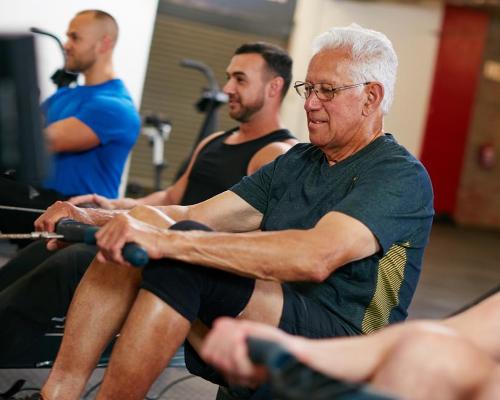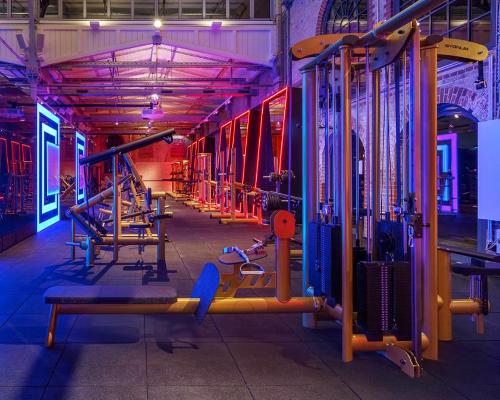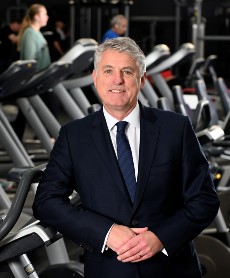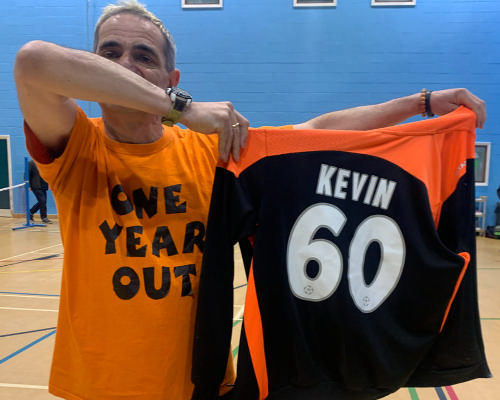features
Interview: Malcolm McPhail
The CEO of Life Leisure talks to Kate Cracknell about challenging the public health commissioners, and about changing the whole model of fitness facilities
Malcolm McPhail, CEO of Life Leisure – the leisure trust formerly known as Stockport Sports Trust – is on a mission to get public health commissioners to think differently.
“The first thing a GP will ask you when you go to see them is: ‘How are you feeling?’ It’s a qualitative question, because improved health – the positive impact of an intervention – is judged qualitatively by the individual. Do they feel better? Has their life improved? The GP will then tick a box and that’s when it becomes a clinical statistic. But 90 per cent of the time that clinical statistic is based on a qualitative answer from the patient.
“We have reams of qualitative data from the interventions and programmes we run, all of which evidences exactly this sort of impact – the real life stories from people whose lives we’ve changed – but if you put that in front of the commissioners, they simply dismiss it out of hand.
“And yet, by not acknowledging qualitative feedback – by focusing only on quantitative, clinical outcomes – they end up not knowing what they want to commission, because they’re using a model that’s not applicable to the outcomes they’re looking for. They simply don’t have a model to measure physical activity within a community.
“In the meantime, the clinical data is already there to prove beyond any doubt that physical activity improves your health: the more you do, the more your health will improve. What the commissioners need to get their head around is that it’s all good – quite simply any exposure to physical activity which means the individual becomes more active than they were before is going to improve their health. End of. Don’t keep asking us to prove it. Don’t keep telling us there’s a lack of evidence. Help us solve the problem – don’t just throw it back as our problem – because then we can make you look good as commissioners, because everyone will be physically fitter and healthier.
“I get angry when they say the fitness sector has no place on a health and wellbeing board; there should be exercise specialists on every single health and wellbeing board. We just have to convince them we’re neutral enough that we’ll be there to shape the health of the whole borough, not just to look after our own business interests.”
Changing the focus
He continues: “We’re our own biggest enemies though. We shoot ourselves in the foot because we set ourselves up to cater only for the 13 per cent of people who already use our gyms, and that just reinforces the commissioners’ view that we’re too focused on fitness and body image.”
McPhail was therefore keen to try a new approach, and the trust’s Avondale Leisure Centre was identified as the ideal test-bed: five years ago it had just 500 members and was losing £170k a year. “We had nothing to lose,” says McPhail. “The centre was earmarked for closure and it was the last throw of the dice.”
He and his team came up with the concept of a local ‘health hub’ in which they did “the complete opposite of everything that’s been done in this industry”. The physical environment within the centre was changed: all mirrors removed, partition walls brought in to offer privacy while exercising, bariatric chairs introduced, and an AlterG anti-gravity treadmill acquired to help larger individuals exercise. The programming was also overhauled, with new schedules introduced that used the pool for water-based activities and that put classes such as Legs Bums Tums in prime-time slots.
“It was very unsophisticated in its approach – just a case of stripping away everything that could act as a barrier to people being active,” says McPhail.
Unsophisticated perhaps, but at the same time a great example of fresh thinking. “In a way, Avondale isn’t really a health club,” adds McPhail. “It’s almost like a self-help centre where we talk to members about things like discipline: they must be ready to work hard towards their goals. They also need respect for what they’ve been asked to achieve – an appreciation that it will bring about important changes in their lives. Finally, they must be given an understanding of why they’re being asked to do certain things. Don’t just tell them to go and run on a treadmill for 10 minutes – tell them why.
“We’re really honest with people too. We tell them it will probably hurt a bit, and they might be stiff afterwards, but if they stick with us it’ll change their life.”
Support for the concept wasn’t always there – “I couldn’t get anybody to believe in it at first, so we just went ahead and did it with £250k of our own money,” says McPhail – but it’s proved highly effective. Membership is up to 1,500, the centre is on-track to turn a profit next year, it’s tapped into new funding streams as a result of its achievements, and it’s now held up as a best practice example within the borough and beyond.
“It just proves that tapping into the non-13 per cent can be commercially viable,” says McPhail. “And it’s absolutely something that could be replicated by any operator in the country, whether public or private sector. In fact, if we’re going to have any impact on public health, the private sector operators have to be just as convincing as the local authorities and trusts in changing their tactics.
“The problem is, I think we as a sector hide behind the smokescreen of people blaming lack of exercise on lack of time. The real issue is that we can’t be bothered to put something in place that actually meets the demands of the individual. That’s what Avondale was all about.”
Personal perspective
Besides the commercial rationale, McPhail also has a very personal reason for broadening the reach of his centres. He may now be a CEO who has grown his business from a turnover of £3.5m when he joined in 2007 to £11.5m in 2013, but his childhood was a tough one: “I came from a single parent family, I spent some time in care, my father was an alcoholic, I used to stand in free school meal queues being identified as poor and different from everyone else.
“When I questioned this, I was always told ‘that’s just the way it is’, and I developed a hatred for that statement. Even today, it drives me to challenge tradition and conventionalism. For me, ‘that’s the way it is’ isn’t acceptable as an answer to anything.
“Fortunately for me, I was a reasonable athlete: I was British Counties Champion and held numerous Scottish titles at 400 metres and 400-metre hurdles. Sport gave me the discipline and focus to make my life what I wanted it to be.
“Now I’m in a position where I can make a difference, although it sounds cliché, that’s what I want to do. I don’t want to provide health and fitness only for those who can afford it. I also want to give opportunities to people like myself.
“In any case, at some point the sector has to get sick and tired of fighting over the same people – the same 13 per cent. In a way I’m now glad the budget operators came along and forced us to rethink our model, because they can have the fit, healthy 16- to 25-year-olds. Their arrival has forced me into making that step to go after the other percentage, the silent majority, and I’m over the moon about it.”
Return to activity
But reaching beyond the 13 per cent isn’t just about changing the offering and pricing at leisure centres. At the heart of the Avondale experiment was the pilot of an intervention known as actiLife – a ‘back to activity’ scheme that targeted local residents who were either overweight or felt too intimidated to use a gym.
“You can’t expect these people to come straight to the gym,” says McPhail. “You need an industrial-sized concept or intervention that just gets them interested in physical activity more broadly.”
So what was the actiLife concept? Quite simply, it was to start people off by getting them walking, with a specially designed walking programme and walking officers on-hand to run sessions. McPhail explains: “Public health departments have confused the public with conflicting messages in the past, not to mention campaigns suggesting that all people need to do to get healthy is to walk. Walking alone isn’t enough. However, it is the first step on the journey to health and fitness.”
A total of 300 participants were recruited onto the ‘pre-membership’ scheme via a range of channels, including GP referrals and links with the local housing association and job centre. Running over a period of 12 months – actiLife was one of the interventions monitored in the 2012 ukactive Research Institute study – the results were impressive: 33 per cent of participants reported a decrease in weight and blood pressure, 75 per cent reported more activity, and 90 per cent said they would recommend the programme to a friend.
Most important of all, they all felt more aware of their activity levels and more confident about taking responsibility for their own activity and weight in the future. Indeed, around three-quarters of participants went on to take up membership at Avondale. “When we felt they were at the threshold where a bit more physical activity would benefit them, we invited them into the centre to see what we could do – what classes might appeal to them, for example,” says McPhail.
Life Leisure is now looking to mirror the success of actiLife in a new pilot, actiSport, which takes the same walking-based approach but as a re-entry point into sport rather than gym-based activity. Supported with new funding from Sport England, it’s currently also offered through Avondale, which has introduced sessions such as walking football as a way to bridge the gap between inactivity and full-blown sport.
Going forward, the aim is for the full package – actiLife and actiSport, new software being developed to support them, and advice on the physical offering – to be made available at other Life Leisure sites, as well as to new contracts beyond Stockport. The decision is yet to be made if this will be offered on a franchise basis or as a commissionable package.
Preferred behaviours
But Avondale is just one example of how Life Leisure is doing things differently.
One interesting new initiative is the organisation’s scrapping of job descriptions in the belief that people generally know what their job involves; what makes the difference is how they behave while carrying out their job.
“We’re moving towards what we call preferred behaviour models, whereby people don’t have a job description but instead are given a model of behaviour we expect them to follow,” explains McPhail. “There’s a different model for each department, and that’s what we’ll measure and reward people against.
“Meanwhile, at a company level, the preferred behaviour is ‘personal best’. We want our staff to strive to achieve personal best days every day.
“Within all that, I have a strategic group called ‘sentinels’ who help guide the company in the right direction. There are about 25 of them at the moment – cleaners, PTs, junior managers, general managers – and hopefully that will grow, but they all have one thing in common: the correct behaviour and attitude.
“I believe this will help ensure we have a strong internal brand. Everybody talks about having a strong external brand, but you have nothing unless your own people believe in what you’re doing. Nike employs hundreds of people to look after its internal brand, and I firmly believe our size is irrelevant in that respect. We should be acting like the big blue chip companies, delivering our vision and mission with a much higher level of sophistication.
“Everything I do in Stockport, I do as if I’m in charge of Adidas or Nike.”
Survival of the fittest
But the external brand is also important, and the rebrand to Life Leisure last year – besides lifting the geographical limitations imposed by having ‘Stockport’ as part of the organisation’s name – also allowed the trust to bring in “a complete culture change” that consolidated its links with the local community, further developing its partnerships and building on its already strong outreach foundations.
“By about 2018, there won’t be any local authority funding for leisure facilities.” says McPhail. “Whether we like it or not we’re non-statutory, so we have to come up with ways to deliver our own funding. That might be by becoming more commercial – going after new contracts – or by expanding our horizons beyond public health, delivering interventions to tackle all the other strategic issues local authorities face, from dysfunctional families to disabled people to NEETs.
“Either way, I think we’ll start to see a move away from the trust as we know it towards a hybrid trust model that’s more commercial. Either that or trusts will develop separate brands, one delivering a commercial offering in a competitive market and the other delivering the social net value-type approach.
“Whatever happens though, the budget clubs have changed the market for good. Everybody’s had to sharpen their sword and only the most creative will survive.”
